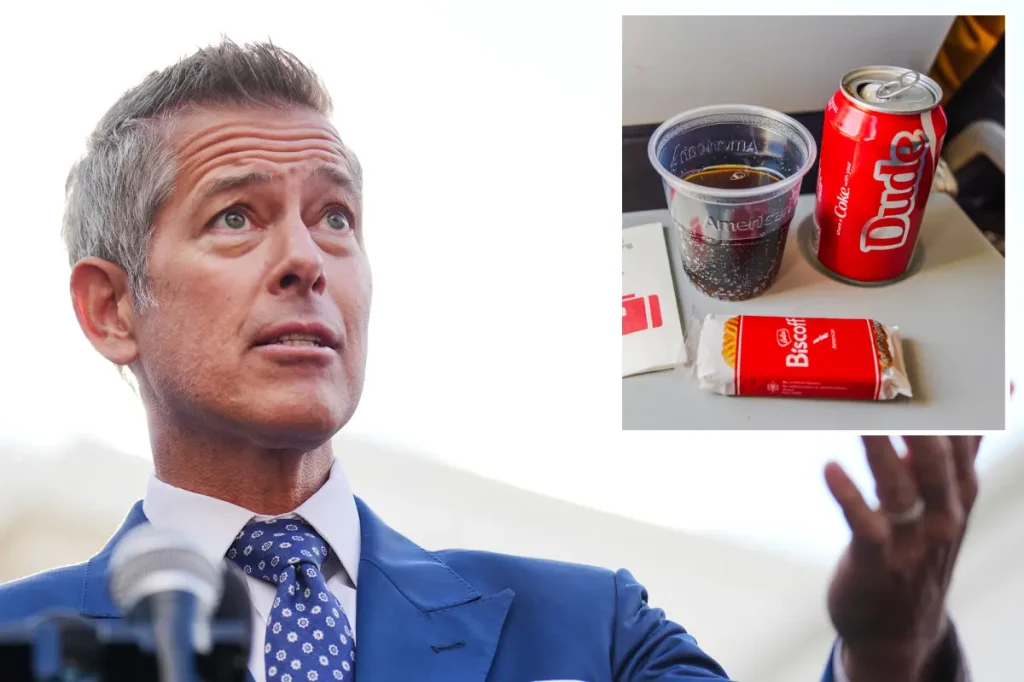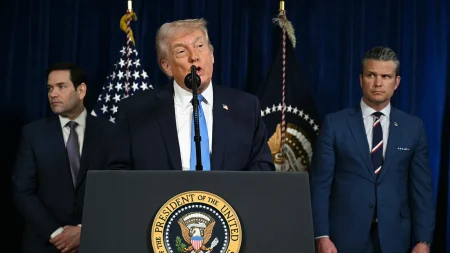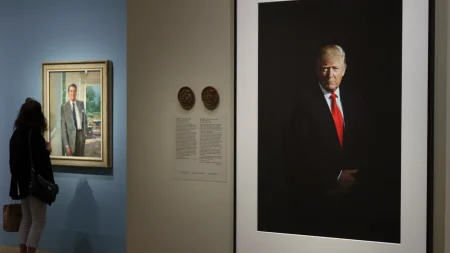Transportation Secretary Duffy Advocates for a More Courteous and Healthier Flying Experience
In a recent series of public statements, Transportation Secretary Sean Duffy has embarked on what some might call a refreshing push for better airport and airline experiences, addressing everything from in-flight snacks to passenger etiquette. During an interview with Blaze News on Tuesday, Duffy expressed his desire for healthier food options during air travel, stating, “I would love some better snacks. I would love a little healthier snack on the airplane.” His comments reflect a personal frustration that many travelers share—being limited to “the really fattening cookie full of butter, sugar, and crap” or “that little snack pack of pretzels” that have become synonymous with air travel. This call for nutritional improvement represents just one facet of Duffy’s broader vision for enhancing the flying experience in America.
Beyond merely addressing the nutritional quality of in-flight offerings, Secretary Duffy has also turned his attention to the social atmosphere aboard aircraft, particularly as the busy Thanksgiving travel season approaches. During a Monday press conference, he spoke candidly about what he perceives as “a degradation in civility, in the airspace.” Rather than pursuing legislative solutions or mandates to address behavioral issues, Duffy has opted for a more personal approach, appealing directly to travelers’ sense of courtesy and community. “You can’t legislate that, right? You can’t mandate it,” he acknowledged, before adding, “I think you won’t get a better result unless you make the ask.” This straightforward recognition that cultural shifts begin with conversation rather than regulation has struck many as a pragmatic approach to improving travel conditions.
The Transportation Secretary’s appeal extended beyond mere politeness to include practical suggestions for how passengers might contribute to a more pleasant travel environment. Duffy encouraged physically capable travelers to assist those who might struggle with overhead bin storage: “If we can help someone as we get on the aircraft that might need help putting their bag in the overhead bin, and you’re a little stronger, a little buffer, you’ve been lifting, stand up and offer to grab that bag and put it up for someone.” This suggestion embodies the kind of small but meaningful acts of kindness that can transform the often stressful experience of air travel into something more communal and supportive. By framing assistance not as an obligation but as an opportunity to listen to our “better angels,” Duffy has attempted to inspire rather than mandate consideration for fellow travelers.
Perhaps most controversially, Secretary Duffy also addressed passenger attire, suggesting that travelers might consider upgrading their fashion choices when flying. “Let’s try not to wear slippers and pajamas as we come here,” he remarked, touching on a topic that divides frequent flyers—the balance between comfort and decorum during air travel. This comment harkens back to an earlier era when air travel was considered a special occasion warranting formal dress, contrasting sharply with today’s more casual approach. While some passengers prioritize comfort during long flights or connections, others maintain that more formal attire contributes to a more dignified atmosphere. By raising this issue, Duffy has reopened a conversation about social expectations in shared public spaces like airports and aircraft cabins, where diverse preferences and priorities inevitably collide.
The public reaction to Duffy’s various suggestions has been predictably mixed, reflecting the diversity of opinions about air travel etiquette. Some “stylish NYC fliers” have reportedly praised the Transportation Secretary’s call for more formal attire and improved behavior, perhaps seeing in his comments a validation of their own approach to travel. Others have criticized Duffy for having “lost the plot,” suggesting that his focus on matters of attire and snack quality might be misplaced amidst the more pressing structural challenges facing the American transportation system. This division of opinion underscores the personal nature of travel experiences and the difficulty of establishing universal standards in an industry serving millions of diverse passengers daily.
What makes Secretary Duffy’s comments particularly noteworthy is their departure from the typically technical or policy-focused statements one might expect from a Transportation Secretary. Rather than addressing airline consolidation, flight delays, or infrastructure investments, Duffy has chosen to highlight the human aspects of air travel—nutrition, courtesy, helpfulness, and presentation. This approach acknowledges that while regulatory frameworks and industry structures certainly impact the travel experience, so too do the countless small interactions and choices made by individual travelers. By inviting Americans to reconsider their personal contributions to the flying environment, from dietary choices to attire to interactions with fellow passengers, Duffy has initiated a conversation about collective responsibility for shared experiences. Whether this conversation translates into measurable improvements in air travel culture remains to be seen, but it has certainly succeeded in drawing attention to aspects of the travel experience that often go unaddressed in official discussions of transportation policy.









